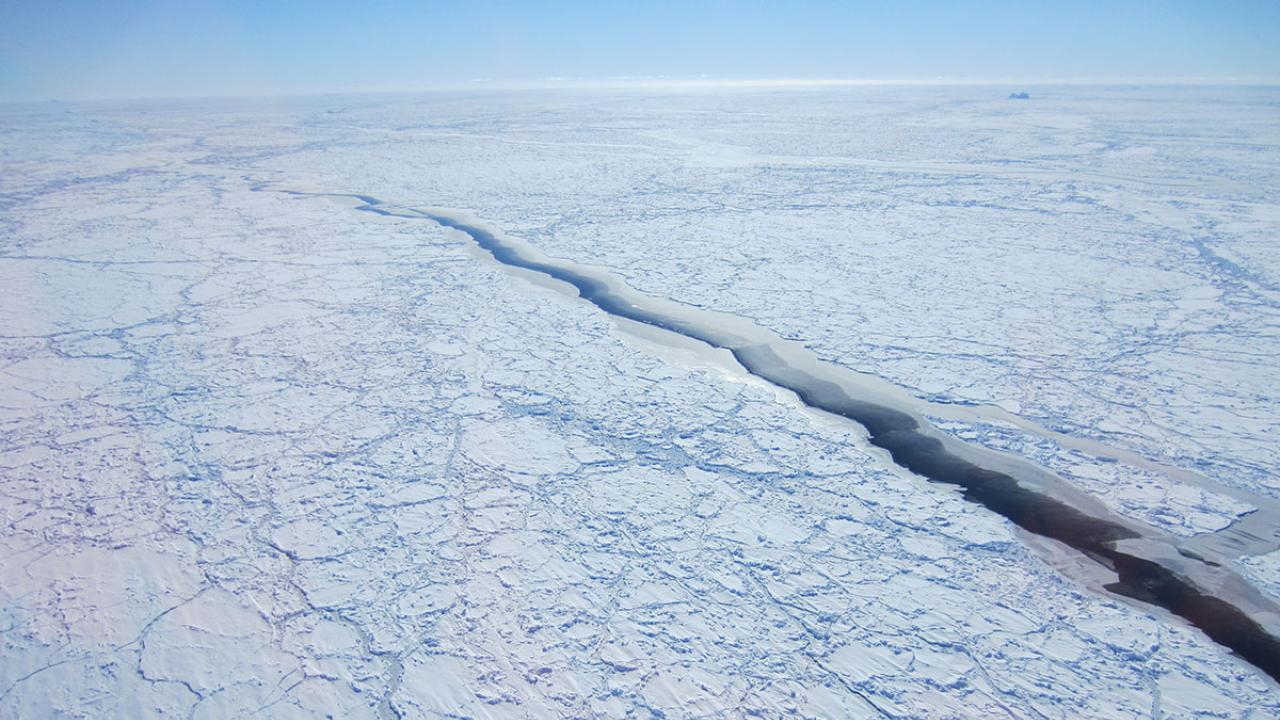
What are the connections and roles of the Earth's polar regions to the global climate system? As average global temperatures rise, what will be the long-term effects of melting sea ice?
These questions were at the heart of a recent school and workshop, held at ICTP, that brought together international experts on the Arctic and Antarctic to discuss the interactions between the cryosphere, ocean and atmosphere within the polar regions, and how ongoing changes in the polar regions are affecting regional and global climate. The changes have important implications not only for the Earth's climate but also for ecosystems and human society. Observing and monitoring these changes requires an international, multidisciplinary approach. The school and workshop provided exactly that; by the final day of the two events, participants moved to produce an international call for action (read more below).
Observing and Modelling Polar Regions
ICTP's School on Polar Climates: Theoretical, Observational and Modelling Advances, which ran from 22 to 27 July, attracted more than 80 participants from around the world who came not only to hear about the latest efforts to observe and model the rapid changes taking place in the Arctic and Antarctic, but also to network and share their own research efforts on the regions. Lectures on topics ranging from atmosphere-ice-ocean interactions to data management and numerical modeling were complimented by poster presentations by more than 35 of the school's participants, each covering a different aspect of the changes taking place in the polar regions.
The Role of Sea Ice
An immediate affect of a warming global climate is the drastic loss of sea ice in both polar regions. Following on the school's focus on polar climate, a three-day "Workshop on the Role of Sea Ice and its Variability in the Climate System" turned participants' attention to advances in understanding the variability of sea ice in both polar regions and its linkage with the climate system. Sea ice loss is detrimental to ecosystems and biodiversity and affects numerous climate processes, including the oceanic overturning and increased glacial erosion, ultimately leading to global sea-level rise.
Among the lectures at the workshop was a presentation on the United Nation’s Ocean Decade-endorsed Antarctica InSync programme, which aims at conducting synchronous scientific observations across the Southern Ocean and Antarctica. ICTP workshop participants discussed observational approaches for Antarctica InSync and the required resources to achieve research outcomes that will allow the global scientific community to gain significant knowledge of the coupled southern polar system. Potential similarities and lessons learned from Arctic sea-ice retreat and past observational campaigns, such as the MOSAiC expedition, were discussed as well as the potential of artificial intelligence in advancing models that have so far failed to predict the observed sea-ice evolution. As a result, the skill of classic climate models is expected to grow, reducing uncertainty in projections of possible future climatic conditions.
A Call for Action
Moved by the latest advances presented at the school and workshop, along with evidence that Antarctic sea ice is on track to a second winter of extreme sea-ice deficit following from the one in winter 2023, participants including the world's leading polar experts released a call for international action and commitment for Antarctica InSync.
-- Antarctic Call for Action --
Thanks to the Sponsors
The school and workshop were organized by the Northern and Southern Ocean Region Panels (NORP and SORP) and sponsored by the World Climate Research Projects’s Climate and Ocean - Variability, Predictability and Change (CLIVAR) as well as Climate and Cryosphere (CliC), Scientific Committee for Ocean Research (SCOR), the International Arctic Science Committee (IASC), and Scientific Committee for Antarctic Research (SCAR).
More details about the school, including videos, presentations and poster abstracts, can be found here.
Workshop materials, including videos, presentations and poster abstracts, can be found here.
















